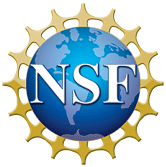Questions for Sarah Evans
How did you become a scientist/engineer?
I grew up on hiking trails in the Pacific Northwest and have always been interested in our natural world. I realize now that even at that early age I showed the curiosity, creativity, and motivation necessary to be a scientist.
My bachelor's degree is in Geology and Environmental Studies with an emphasis on hydrology. I was fortunate to be selected for the NSF Research Experiences for Undergraduates (NSF-REU) summer program, which I spent in the Mojave Desert studying isolation-related non-tectonic rock cracking. I spent 2 summers as a hydrographer, one with Washington Water Trust in Seattle, Washington, and the following summer with Friends of the Teton River (FTR), a nonprofit water trust in the Teton Valley of eastern Idaho. My time with FTR was my first exposure to the role of science in public policy, and motivated me to include the broader impacts of science in my career and research. It also pushed me to consider a career in hydrology.
I have almost completed a 2-year master's program in geological sciences. When I am done with that, I will begin working on my PhD.
What is your job like?
I've completed a few field seasons in California and participated in weekly local sampling outside. Right now I spend most of my time working indoors on a computer as I focus on finishing my master's thesis.
What are you hoping to learn from your research?
I am most interested in water conservation. I think that if we have scientific researchers focused on understanding the mechanics, mapping location, modeling hydrology over time, we can work to bring all water-driven stakeholders together to reduce consumption and reduce waste. I hope to complete research that improves the reliability and applicability of our understanding of hydrology in the face of diminishing water resources. The GPS project is an accessible, reliable tool that will hopefully allow for improved remote instrumentation.


 unavco.org.
unavco.org.